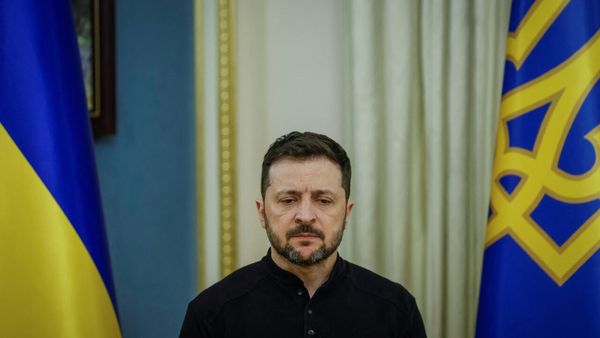
Hundreds of heavily armed police have stormed one of Rio’s largest favelas at the start of what authorities claimed was a “transformational” attempt to wrest back control from the drug gangs and paramilitary mafias which dominate huge swaths of the Brazilian city.
The operation began at daybreak on Wednesday as security forces in camouflage gear and armoured personnel carriers swept into Jacarezinho, a bustling redbrick community that has been a stronghold of the Red Command drug faction since the 1980s.
One burly special forces soldier sported a Latin adage on a tactical vest stuffed with high-caliber ammunition.
“Si vis pacem, para bellum,” it said. “If you want peace, prepare for war.”
Hours later police said 30 arrests were made as troops targeted Muzema, a much smaller favela controlled by the “milícia” mafia groups that many now consider a far greater threat than Rio’s drug factions.
“Today’s operations are merely the start of changes that go far beyond public security,” tweeted Rio’s conservative governor, Cláudio Castro, an ally of the Brazilian president, Jair Bolsonaro, who once publicly called for the milícias to be legalized.
Civil police chief Allan Turnowski said a permanent police occupation would follow Wednesday’s raid on Jacarezinho, which last year was the scene of the worst police massacre in Rio history. “This will work out. Good always defeats evil,” Turnowski wrote on Instagram.
Other communities will reportedly be occupied in the coming days.

Critics and specialists doubt the new wave of occupations will do anything to resolve the decades-long drug conflict that continues to claim hundreds of mostly young, black lives each year.
A high-profile “pacification” project, launched before Brazil’s 2014 World Cup and Rio’s 2016 Olympics, was initially hailed as a success but failed to permanently evict traffickers from the favelas, while milícias have massively expanded their footprint over the last decade and now control more than 50% of the city.
Pablo Nunes, a public security expert from Rio’s Centre for Studies on Public Security and Citizenship, voiced skepticism over the claim from Rio’s governor that this week’s operations – which caught specialists by surprise – represented the start of “a major process of transformation” in the favelas.
“The favelas and outskirts of Rio have never been transformed by the barrel of a gun,” said Nunes, who suspected the initiative was simply a political ploy to help a politically weak governor secure a second term in office later this year.
“This is a very well-known script,” Nunes said of the political use of public security policy in Rio, with little if any thought given to the people and communities affected or the long-term impact on crime.
Ivan Blaz, the spokesperson for Rio’s military police, pushed back against such doubts, claiming authorities were determined to combat drug traffickers and the “rule of terror” imposed by milícias, who he admitted enjoyed the support of serving or former members of the security forces.
“I understand [some people] feel they have seen this film before … but it’s my duty to not accept this,” Blaz said as a helicopter swooped over streets long controlled by rifle-toting gang members. “Optimism is part of my uniform.”
Leandro Souza, a community leader in Jacarezinho, said he hoped the military occupation would be accompanied by job-creation and training schemes and social projects that could lift a profoundly deprived community flanked by abandoned factories.
“If they manage this … it will be a huge step forwards like never seen before,” he said.
“I hope this is not simply another botched attempt at ‘pacification’ that leads to bloodshed and claims the lives of residents, police officers and even those involved in drug trafficking.”







